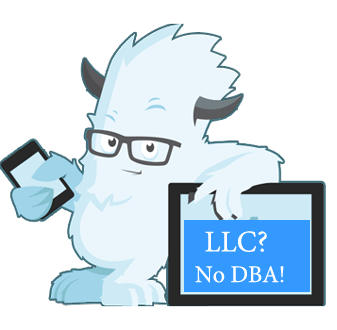How to Incorporate in California
Information about Article of Incorporation California
New Article of Incorporation California Questions
How do get an Article of Incorporation in California?
Articles of Incorporation in California are a Certificate that can be obtained with Incorporation in California through our Office. A Corporation OR LLC filing is recommended to reduce taxes, obtain corporate credit, protect assets, and eliminate personal legal, civil and financial liability.
Is my Article of Incorporation California Available Online?
Yes, Article of Incorporation California is available online. Click Here to fill out on online form and we will prepare and file your articles.
What forms do S corporations file?
- To elect or terminate S Article of Incorporation California status, form FTB 3560, S Corporation Election or Termination/Revocation
- To report franchise or income tax, Form 100S, California S Corporation Franchise or Income Tax Return
- To report shareholder's share of income and deductions, Form 100S, Schedule K-1
- To report list of shareholders, form FTB 3830, S Corporation's List of Shareholders and Consents
How do I get tax-exempt status?
You must file an Exemption Application, and receive exempt status notification from the State Tax Board.
All Article of Incorporation California s and unincorporated even if organized on a nonprofit basis, are subject to California income tax. A grant of federal exemption does not automatically exempt you from California tax. FTB 3500 should be submitted 90 days prior to the date your exempt status is needed.I have exempt status. Do I need to file California Form 100 or Form 109 in addition to Form 199?
Every California organization exempt must file Form 109 if the gross income from an unrelated trade or business exceeds $1,000.My Article of Incorporation California is not doing business; does it have to pay the minimum franchise tax?
Yes, if your corporation is incorporated in or is qualified to do business in California, it must file a return and pay the minimum tax.How do I dissolve my corporation?
File dissolution documents with the Secretary of State.Also obtain a Tax Clearance Certificate by filing form FTB 3555, Request for Tax Clearance Certificate-Corporation. FTB 1149 Explains the entire dissolution process and includes the required filing documents.
reduce the chances for personal liability
Article of Incorporation California OR LLC - AllBusinesses that want to obtain
California Corporate business credit,
Reduce personal and California business taxes, and
Should file a Article of Incorporation California orLLC
A Article of Incorporation California or LLC is the ultimate business entity to form for personal and business asset protection.
State law allows you to create a separate corporate legal entity under which you can transact business, without the risk of exposing your assets to any personal liability that might arise out of your business
Note: Also need to comply with the other license requirements above.
The most common
options of a business structure are a sole
proprietorship, a partnership, or a corporation
/ LLC. You may lean toward the corporate route
because you like the sound of having "Inc."
after the company's name, but there are some
more practical, business-like considerations to
take into account.
More so than with some
of the other structures for a business, starting
a corporation means complying with formalities
required by state laws. Once the shareholders
(owners) of the business agree on some basic
matters, such items are embodied in articles of
incorporation that must be filed with the
appropriate state agency. These essentials
usually include:
* a corporate name;
* the number of shares that can be issued;
* the number of shares each owner will buy
and for what contribution of cash or property;
* the nature of the corporation's business;
and
Home • Incorporate • form
an LLC • Contacts
* the identity of the
directors and officers of the corporation who
will handle day-to-day operations.
The
fledgling corporation will also need bylaws,
which constitute a procedural rule book for the
company.
Decision making
The bottom
line here is that whoever holds a majority of
the shares of a corporation has ultimate control
over it. Usually it takes a majority of the
shares to elect the board of directors, which is
charged with making the "big picture" decisions.
If a decision is momentous enough for the
company's future, such as a change in the
articles of incorporation or whether or not to
merge with another company, the shareholders
usually have a more direct role in that they
themselves must approve the decision by a
certain margin of votes.
The board elects
the officers of the corporation, typically
including a president, vice-president,
secretary, and treasurer. The officers may or
may not be salaried employees or shareholders,
and in some cases one person may hold more than
one office.
Accountability
At or near
the top of the list of characteristics favoring
the corporate structure is the fact that, since
the corporation is treated as a legal "person"
separate from the people who own and run it, the
shareholders as a rule are not personally liable
for the corporation's debts. Instead, their risk
is confined to their investment in the company.
To every rule there is an exception, however,
and here the exception has the colorful legal
name of "piercing the corporate veil." If the
owners do not comply with the statutory
requirements for running a corporation, or if
they blur the lines too much between corporate
and personal finances, the legal fiction of the
corporation as a separate entity is ignored and
the owners are on the hook for the corporation's
losses.
Transitions
As a separate
entity in the eyes of the law, a corporation
does not go out of existence if one or more of
its owners dies. Instead, a corporation stays
alive until its owners decide otherwise.
Transfer of the ownership of the corporation is
accomplished by selling its stock. New owners
are added either when existing owners sell some
of their stock or the corporation itself sells
more shares of stock. The smaller the
enterprise, the more likely it is that the
owners, for whom the corporation may be both
their property and their employer, may agree to
restrict the sale of the stock in order to
maintain control.
The particular
circumstances of each new business and the
differences in the governing laws of the states
make generalities difficult. That said, the
factors on the debit side of the ledger for
corporations include the costs of setting up the
corporate entity, the need for a separate tax
return, and the burden of "double taxation."
Double taxation means that the corporation is
taxed on its profits, and the shareholders are
then taxed on their dividends. On the credit
side are limited liability for the owners and
easy transfer of ownership.
Making the
appropriate choice for a business form is one of
the first, and one of the most important,
decisions a new business will make. Whether
choosing a corporate structure or some other
form, make sure to consult with a qualified
attorney.
Incorporating will help business owners avoid personal tax and civil liability. You can explore the options but the form of incorporation like the C corporation is probably the best but also note that such filing also permits an eventual "S" formation - it permits an S corporation to makes a separate filing of IRS form 2553 as an election to avoid double taxation.This incorporation information service provides you with info about the formation process relative to doing business in any U.S. state. It includes articles of incorporation filing and all documents you need to run your corporation - you can file your corporation online here.
Pay By Paypal
Pay By Credit Card
Check Pricing











